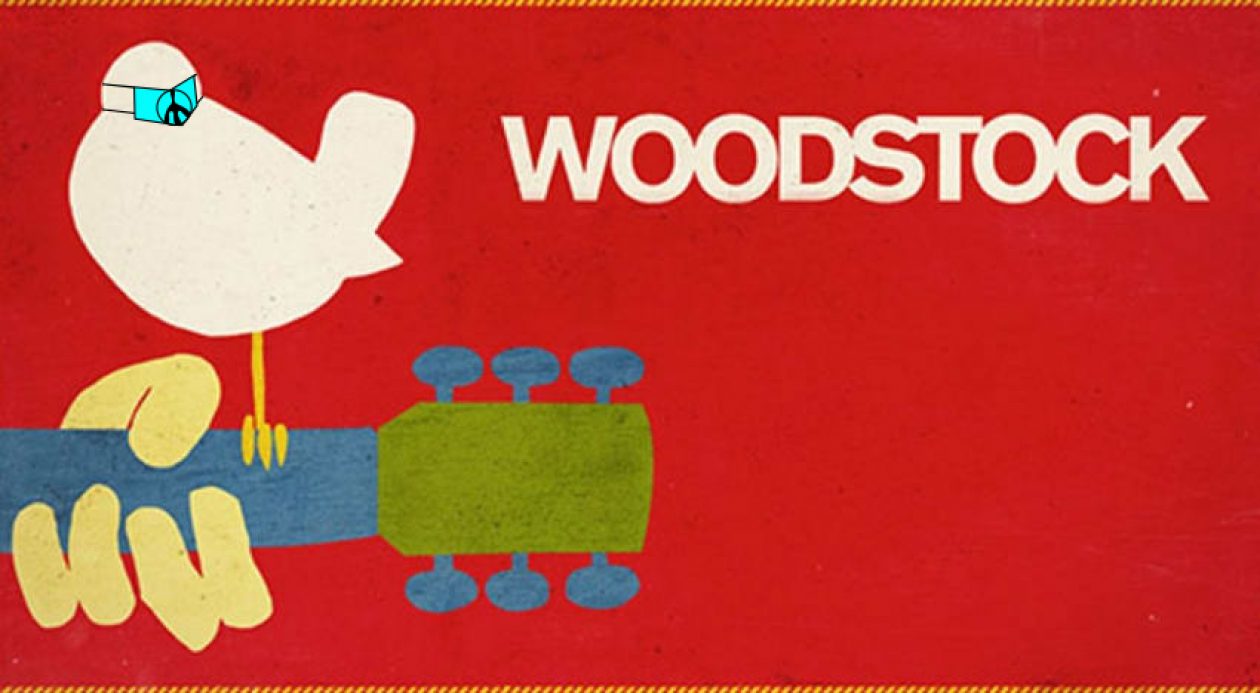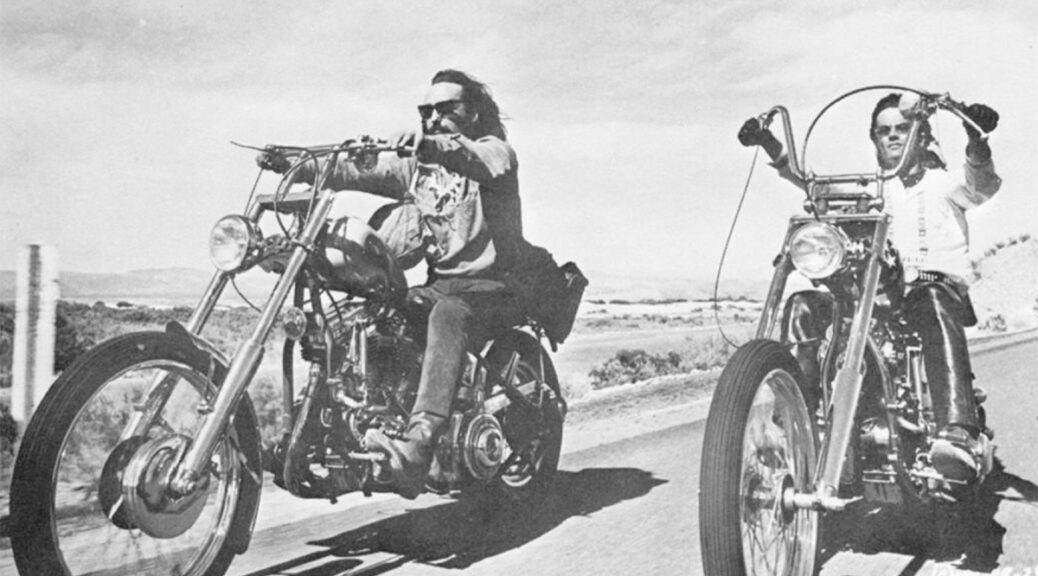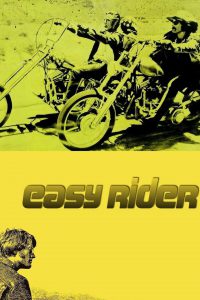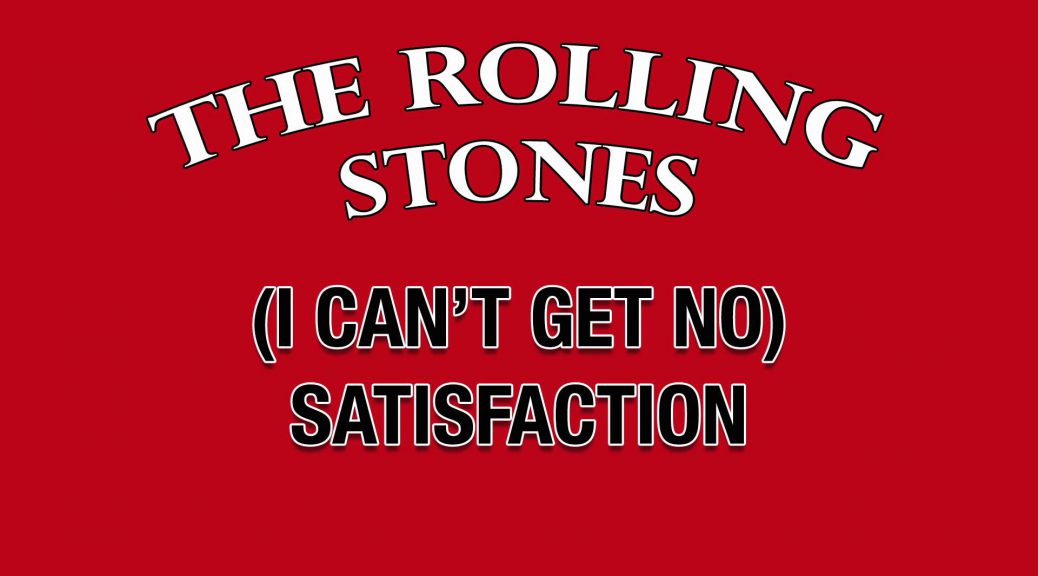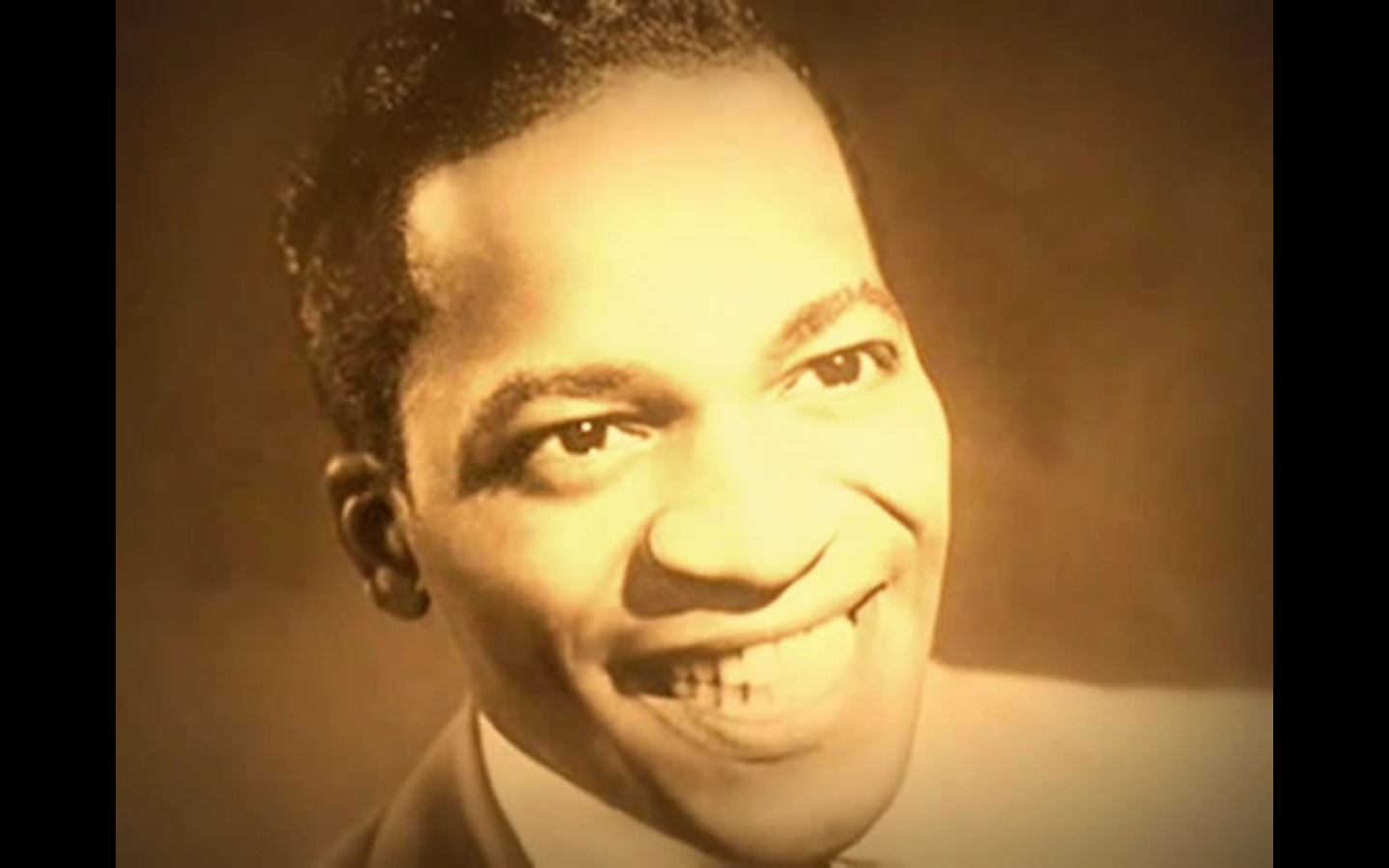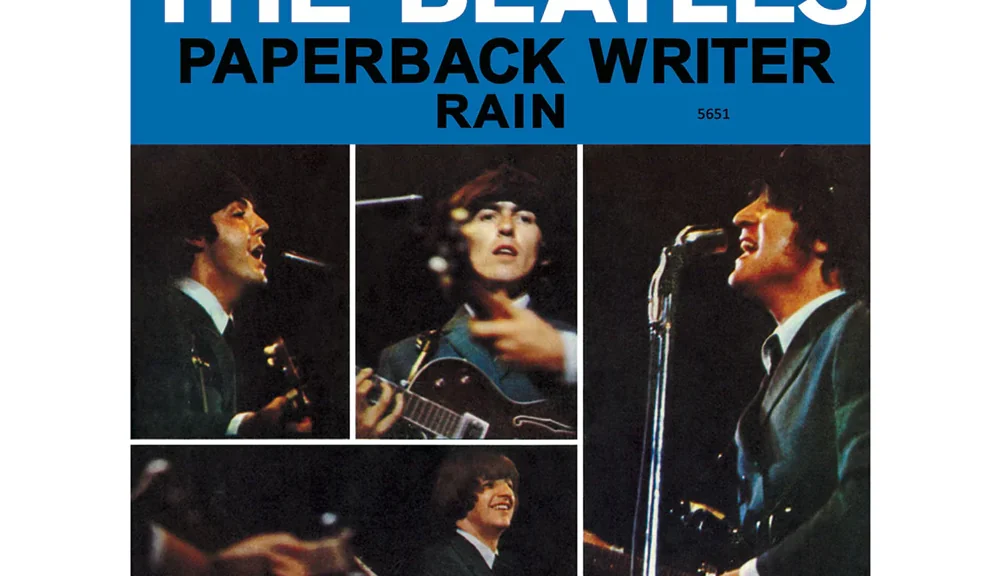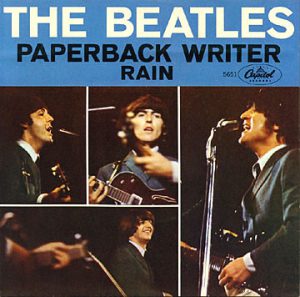Fonda Hopper Easy Rider
Byrds, “Ballad of Easy Rider” (Roger McGuinn)
|
The river flows, it flows to the sea
Wherever that river goes that’s where I want to be Flow river flow, let your waters wash down Take me from this road to some other town All he wanted was to be free
And that’s the way it turned out to be Flow river flow, let your waters wash down Take me from this road to some other town Flow river flow, past the shady trees
Go river go, go to the sea Flow to the sea |
Fonda Hopper Easy Rider
Woodstock away
When Michael Lang and the other Woodstock Ventures partners agreed that they’d do not just an outdoor festival, but an outdoor festival in the country, away from the city, back to Nature, away from the Establishment’s concrete lives, they were tapping into an old American view of the freedom of travel.
Fonda Hopper Easy Rider
Premiered July 14, 1969
Fonda Hopper Easy Rider
Road stories
We humans love stories and we particularly love stories about journeys. Ever since Homer sat down and recited the tale of Odysseus and his attempt to return home to Penelope, multitudes of tales have followed creating variations on that theme.
The list of those variations is far longer than any little blog like this one could delineate, but Mr Chaucer’s 1478 Canterbury Tales comes to mind as does Jack Kerouac’s 1957 On the Road. And of course Mr Tolkien’s tale of Mr B Baggins of Bag End.
Fonda Hopper Easy Rider
Road films
As soon as Americans started to build roads for motorized vehicles, a plethora of films about people and their travels ensued. The movie of John Steinbeck’s The Grapes of Wrath novel couldn’t have happened without cars and roads. At least not in the same way.
Visit the Federal Highway Commission’s site for its extensive list of road-related films.
Fonda Hopper Easy Rider
Easy Rider
By 1969 the cultural revolution was in high gear. Rock festivals dotted the calendar. War protests continued. The anti-hero reigned. In 1967, The Graduate had shown us the suburban anti-hero. Easy Rider introduced us to the western hippie anti-hero.
Fonda Hopper Easy Rider
Captain America & Wyatt
Peter Fonda played Captain America and Dennis Hopper played Billy. Both dress in a counter-cultural style: Fonda in a leather jacket with an American Flag stenciled on it; Hopper in leather pants and jacket in imitation of some Native American tribal dress.
They leave California with a gas tank filled with drug money, intending to head east to New Orleans and thence to Florida. Such a trip is the opposite direction of what traditional American history books told of Manifest Destiny and going west to explore, settle, displace, and claim the American dream.
Fonda Hopper Easy Rider
Easy Rider Itinerary
Along the way they visit a commune, experience free love, get arrested, introduce a new friend (“George Hanson” played by Jack Nicholson) to marijuana, get beaten by locals, use LSD, and witness death.
Fonda Hopper Easy Rider
Ballad of Easy Rider song
From Wikipedia: The star and script writer of Easy Rider, Peter Fonda, had initially intended to use Bob Dylan’s song “It’s Alright, Ma (I’m Only Bleeding)” in the film, but after failing to license the track, Fonda asked Roger McGuinn of the Byrds to record a cover version of the song instead. Fonda also wanted Dylan to write the film’s theme song, but Dylan declined, quickly scribbling the lines, “The river flows, it flows to the sea/Wherever that river goes, that’s where I want to be/Flow, river, flow” on a napkin and telling Fonda to “give this to McGuinn. He’ll know what to do with it.” The lyric fragment was dutifully passed on to McGuinn, who took the lines and expanded upon them with his own lyrical and musical contributions to produce the finished song.
Impact
The story reinforced the counterculture’s view of the Establishment’s worthlessness and corruption, and that most Americans saw those who tried to live freely as a threat to their way of life.
The soundtrack’s artists reinforced that view. Included were The Band, The Byrds, the Jimi Hendrix Experience, and Steppenwolf.
